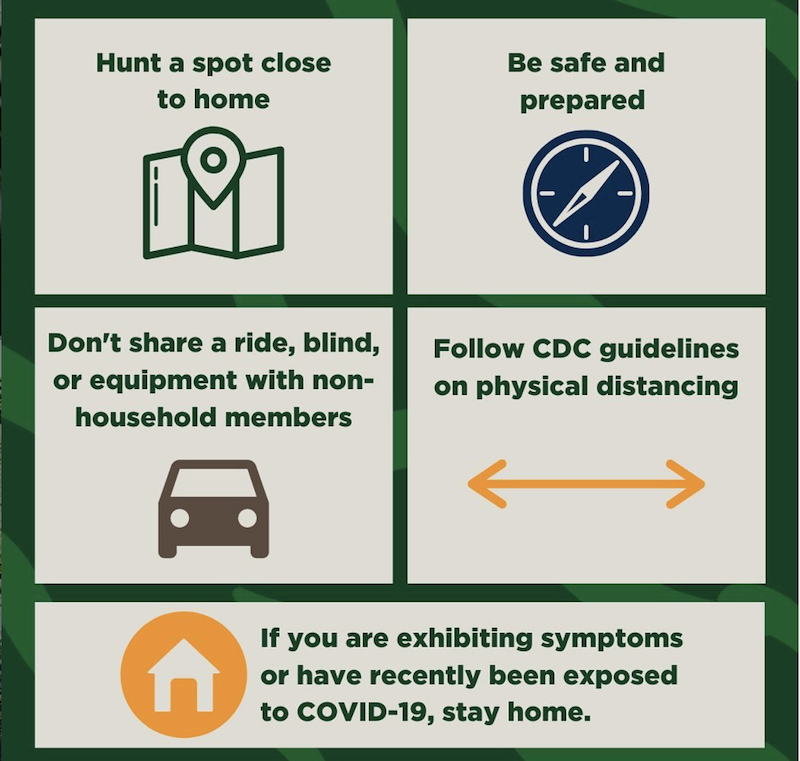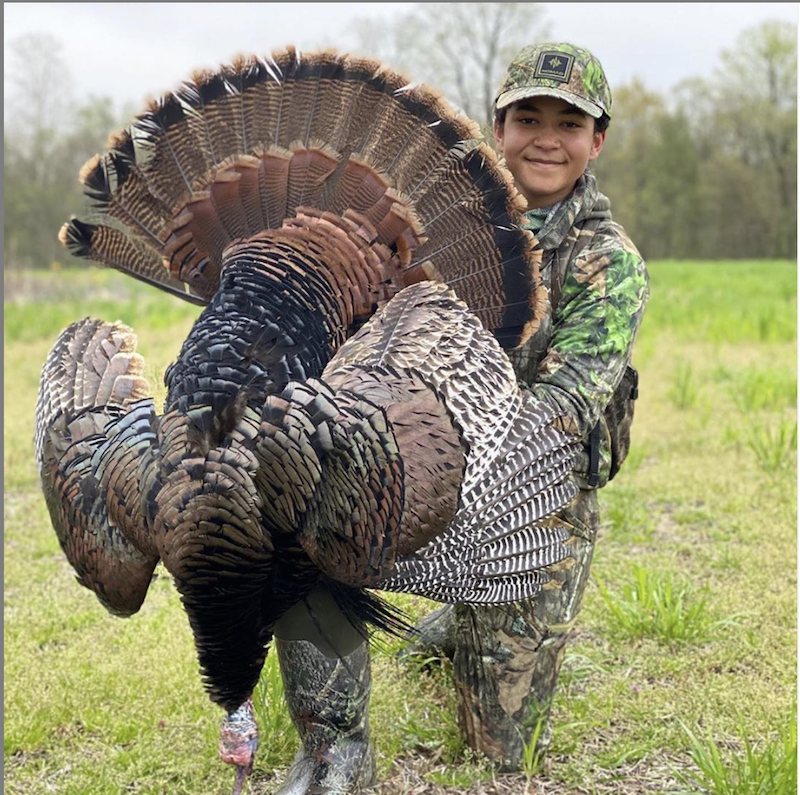R3
Capitalize as Hunting Interest Surges After Pandemic
The R3 community steps up to welcome and accommodate new bowhunters. Get involved to keep newcomers engaged and hunting.
Photo Credit: Kentucky Fish and Wildlife
Many state wildlife agencies reported more hunting license sales since March. Why? Many believe the COVID-19 pandemic sparked the interest as meat supplies shrank and people had more time to get outdoors. They turned to traditional, sustainable sources for protein, like bowhunting. Their newfound interests also strengthened the nation’s conservation efforts.
Let’s discuss how some states helped ease the transition for newcomers, and review ways to capitalize on new license holders.

Maine opened its turkey hunting season early. Many states are offering recommendations for social distancing. Photo Credit: Maine Department of Inland Fisheries & Wildlife
An array of local, state and federal changes required or encouraged social distancing, and sent Americans outside during quarantine. Many outdoors-folks took advantage of online license courses, waived park-entrance fees, and more free time to pursue turkeys, bears and wild hogs.
Several wildlife agencies changed how residents could earn a hunter-education certificate. For example, the New York Department of Environmental Conservation waived the in-person hunter education field day as a requirement. That allowed students to receive their certificate and immediately buy a hunting license after passing the online course.
The Kentucky Department of Fish and Wildlife Resources got more creative. It canceled in-person hunter-education classes and range days, and helped folks earn their certification at home. Students could take a free online course and submit a video of themselves completing the program’s range portion with a mentor. A KDFWR staff member watched the video to determine if the student passed.
Some agencies also changed regulations and season dates to protect residents. Ohio, Kansas, Alaska, Oregon and other states suspended nonresident license sales to prevent or reduce out-of-state visits, crowded check stations and public lands; and give residents exclusive access. Maine residents also received two extra days to hunt turkeys when the Department of Inland Fisheries & Wildlife opened the season early. MeatEater Inc., an outdoor lifestyle company, created a webpage dedicated to state hunting and fishing regulation changes to help hunters, anglers and public-land recreationists stay safe and legal while capitalizing on unique opportunities.
On federal lands, Interior Secretary David Bernhardt waived the National Park Service’s entrance fees to encourage Americans to get outside and while staying socially distanced. The Bureau of Land Management also suspended entrance fees at its properties. The U.S. Fish and Wildlife Service and other states and municipalities made similar moves by temporarily suspending entrance fees at sites they oversee.
These changes removed many participation barriers for newcomers who try archery and bowhunting. Many states also boosted their marketing campaigns, email communications, and social-media presence to connect with newcomers and inform them about hunting rules.
In addition, many nonprofit and nongovernmental organizations like the Quality Deer Management Association, National Wild Turkey Federation, and Council to Advance Hunting and the Shooting Sport expanded efforts to provide R3 information, webinars, and resources.

Encourage new bowhunters to hone their skills and practice while the public lands are less crowded. Photo Credit: Kentucky Fish and Wildlife
What can you do to keep participants active and engaged? ATA members play vital roles in teaching beginners how to bowhunt and keep them hunting. Let’s review some ways to get involved and benefit from new license-holders.
Let beginners know you can help them set up their equipment, find public hunting lands, and be a mentor or information source. Communicate through social media and in person if your business is open. Invite them in to talk gear and strategies. Encourage them to practice, and help them create a hunting plan. It’s difficult to retain new bowhunters if they don’t have a support system. Make your store a social hub for bowhunters, whether to shoot or talk bowhunting. Be their friend, and you’ll earn their trust and business.
Learning a new skill is challenging, especially one that requires outsmarting the fine-tuned senses of wild turkeys and white-tailed deer. Help customers understand how to find a hunting spot, where to aim on deer and turkeys, and how to field dress, package, store and cook wild game. “Learn to Hunt” and “Field to Fork” programs are ideal.
They help newcomers develop hunting skillsets through classroom and hands-on learning. They also help participants build confidence and stay engaged. Click here to learn how to plan a “Field to Fork” program in seven steps. Or read the ATA’s guidebook “Field to Fork: A Curriculum for Mentored Hunts.”
You can also partner with your state wildlife agency to host a program or teach lessons from established programs. Learn more below.
State agencies help lead the R3 movement, and eagerly work with industry partners and private organizations to improve a new bowhunter’s journey. Contact your state’s R3 coordinator to discuss how you can get involved. Check out opportunities to partner on and promote other group’s classes, programs and services. Visit the ATA’s “State Contacts” page for contact information to many industry partners, organizations and representatives.
Before calling to discuss options with an R3 coordinator, write down what your business can offer and what you hope to get from the partnership. Explain how your business adds value to their R3 activities. If you’re unsure what to say, stay tuned. The ATA is creating sample conversation outlines to help you get the most from partnerships.
Questions? Contact Josh Gold, ATA’s senior manager of R3 and state relations, at joshgold@archerytrade.org.

WE ARE HERE TO HELP THE INDUSTRY, TO HELP INDIVIDUAL BUSINESSES GET THE MOST OUT OF THE INDUSTRY, AND TO HELP YOU.
